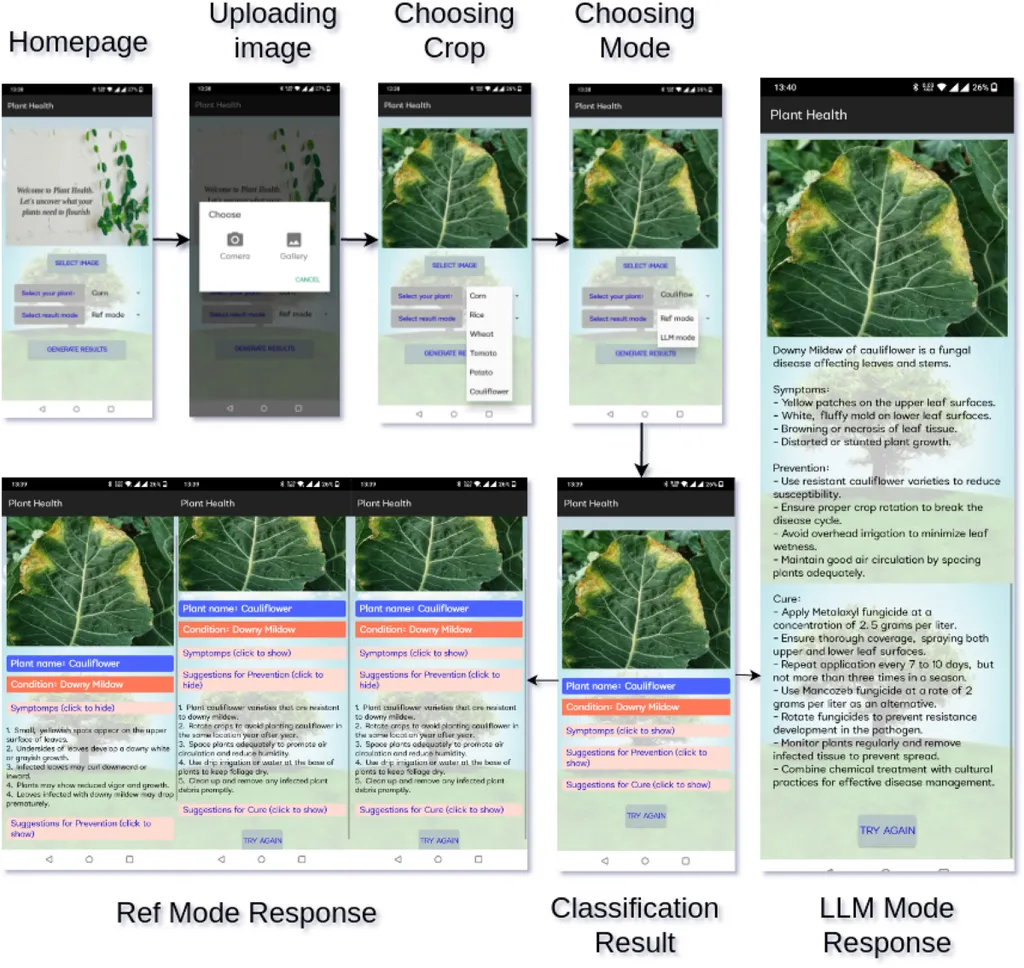In the heart of Saudi Arabia’s agricultural innovation, a groundbreaking development is set to revolutionize how farmers diagnose plant diseases. Saleh Albahli, a researcher from the Department of Information Technology at Qassim University, has introduced AgriFusionNet, a lightweight deep learning model designed to integrate multiple data sources for real-time, accurate plant disease diagnosis. This advancement could significantly impact the agricultural sector, particularly in regions where precision agriculture is crucial for sustainable crop production.
AgriFusionNet stands out by combining RGB and multispectral drone imagery with IoT-based environmental sensor data, such as temperature, humidity, and soil moisture. This multimodal approach allows for a comprehensive analysis of crop health, providing farmers with timely and precise information to mitigate crop losses and enhance yield. “The integration of these diverse data sources is a game-changer,” Albahli explains. “It enables us to capture fine-grained disease patterns that might otherwise go unnoticed, leading to more effective and timely interventions.”
The model is built on the EfficientNetV2-B4 backbone, incorporating Fused-MBConv blocks and Swish activation to improve gradient flow and reduce inference latency. This design choice ensures that AgriFusionNet is not only accurate but also efficient, making it suitable for deployment on edge devices. “We aimed to create a model that is both robust and practical,” Albahli adds. “The ability to deploy it on edge devices means that farmers can access real-time diagnostics without the need for extensive computational resources.”
AgriFusionNet’s performance is impressive, achieving a classification accuracy of 94.3% and an inference time of just 28.5 milliseconds. Moreover, it boasts a 30% reduction in model parameters compared to state-of-the-art models like Vision Transformers and InceptionV4. This efficiency makes it a cost-effective solution for large-scale agricultural operations, where timely disease diagnosis can mean the difference between a bountiful harvest and significant losses.
The model’s effectiveness was thoroughly evaluated using a comprehensive dataset composed of real-world and benchmarked samples. Extensive comparisons with both traditional machine learning and advanced deep learning methods underscored its robustness and generalization capabilities. Ablation studies and confusion matrix analyses further confirmed its diagnostic precision, even in visually ambiguous cases.
The implications of AgriFusionNet extend beyond individual farms. As precision agriculture becomes increasingly important in the face of climate change and growing global food demand, tools like AgriFusionNet can play a pivotal role in creating smart and sustainable agricultural ecosystems. “This technology has the potential to transform the way we approach crop health monitoring,” Albahli notes. “By providing accurate and timely diagnostics, we can help farmers make informed decisions that lead to better yields and more sustainable practices.”
Published in the journal ‘Agriculture’ (Zemědělství), this research marks a significant step forward in the field of agricultural technology. As the world continues to grapple with the challenges of feeding a growing population while minimizing environmental impact, innovations like AgriFusionNet offer a beacon of hope. They demonstrate the power of technology to address real-world problems and pave the way for a more sustainable future.
The commercial impacts of this research are substantial. For the energy sector, which often intersects with agriculture in the production of biofuels and other agricultural products, AgriFusionNet could enhance the efficiency and sustainability of crop production. By ensuring healthier crops and higher yields, it can contribute to a more reliable supply chain for agricultural products used in energy production.
As the agricultural sector continues to evolve, the integration of advanced technologies like AgriFusionNet will be crucial. This model not only sets a new standard for plant disease diagnosis but also opens up new possibilities for the future of precision agriculture. With its combination of accuracy, efficiency, and scalability, AgriFusionNet is poised to make a lasting impact on the way we grow and harvest our crops.

